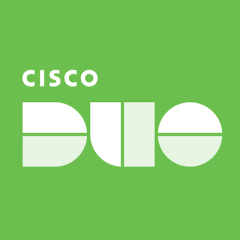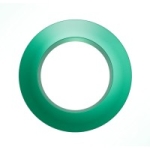What is our primary use case?
The main use case for Cisco Duo is MFA, which means multifactor authentication using the app and using keys like YubiKeys for various devices, such as RDP and remote access, but I would say remote access is the most prominent use case.
What is most valuable?
Right now, the feature I appreciate most about Cisco Duo is the Duo Directory, which is exciting because it became an IDP.
It is exciting that with Cisco Duo, I can offload guest users and contractors to Duo, so they do not have to exist in the customer environment from their AD, which is a nice way to accommodate guests and contractors needing access to applications.
I express how I appreciate Cisco Identity Intelligence to customers using the Duo Advantage license and always try to push them to at least take a look because it is essentially free with the Duo product.
I have multiple MFA vendors in our portfolio, and I try to position Cisco Duo because I think it is a really good product, but we also try to position other solutions depending on what the customer wants and where they think we can go together.
I deployed Duo Directory to manage user identities, and I think it is great because it is never a standalone provider; it always acts as an additional provider or broker functionality to be the front door and decide to go this way or go to the other IDP.
Once Cisco Duo is set up and running, it just keeps running.
What needs improvement?
I think Cisco Duo can be improved with more YubiKey support with all applications, especially for Windows login.
For how long have I used the solution?
I have been using Cisco Duo for three to four years, since the beginning of 2020.
What do I think about the stability of the solution?
I did not notice any problem with stability and reliability; it was always available with not much downtime needed.
Sometimes if I have problems, I obviously have to create a TAC case to ask for help, but most of the time, I would say it is very stable.
What do I think about the scalability of the solution?
I think Cisco Duo is scalable for organizational growth, as we have some customers using it who then onboarded new users and even bought companies and onboarded them; it is highly flexible and I did not feel any slowdown anywhere.
How was the initial setup?
The experience of deploying Cisco Duo is great; it is fast and not too complex in my opinion, as you can integrate basically anything into Duo, so I would say the experience is overall very great as an administrator.
What was our ROI?
I think Cisco Duo helped reduce the overall authentication-related cost for the company indirectly, as there is less work to do for the admins, because once it is set up, users understand the app, know how to use it, and rarely have problems, so if new devices need registering, they can do it themselves, depending on the setup.
What's my experience with pricing, setup cost, and licensing?
The pricing for Cisco Duo is kind of okay, but most of the time, your competitor is someone like Microsoft who gives it out for free with their offering, making it tough to argue with customers why they should spend additional dollars to also get Duo to improve their setup, but I think the pricing is fair.
What other advice do I have?
I am mostly part of the deployment and with the customers; I am not on the operational side of things, so I cannot really share about phishing attacks, but I mean, Cisco Duo allows phishing-resistant MFA, which is why I try to push my customers to use it, so I would argue, hopefully not.
That is why I try to push my customers to actually use proximity verification and use passkeys to strengthen security, which was mentioned in my previous answer.
I think there is a return on investment for the support team, where they can help validate customer requests and also through self-service portals, but I do not have any numbers regarding return on investment.
I would give Cisco Duo as a solution a rating of 10 because it is great.
Disclosure: My company has a business relationship with this vendor other than being a customer. Partner















